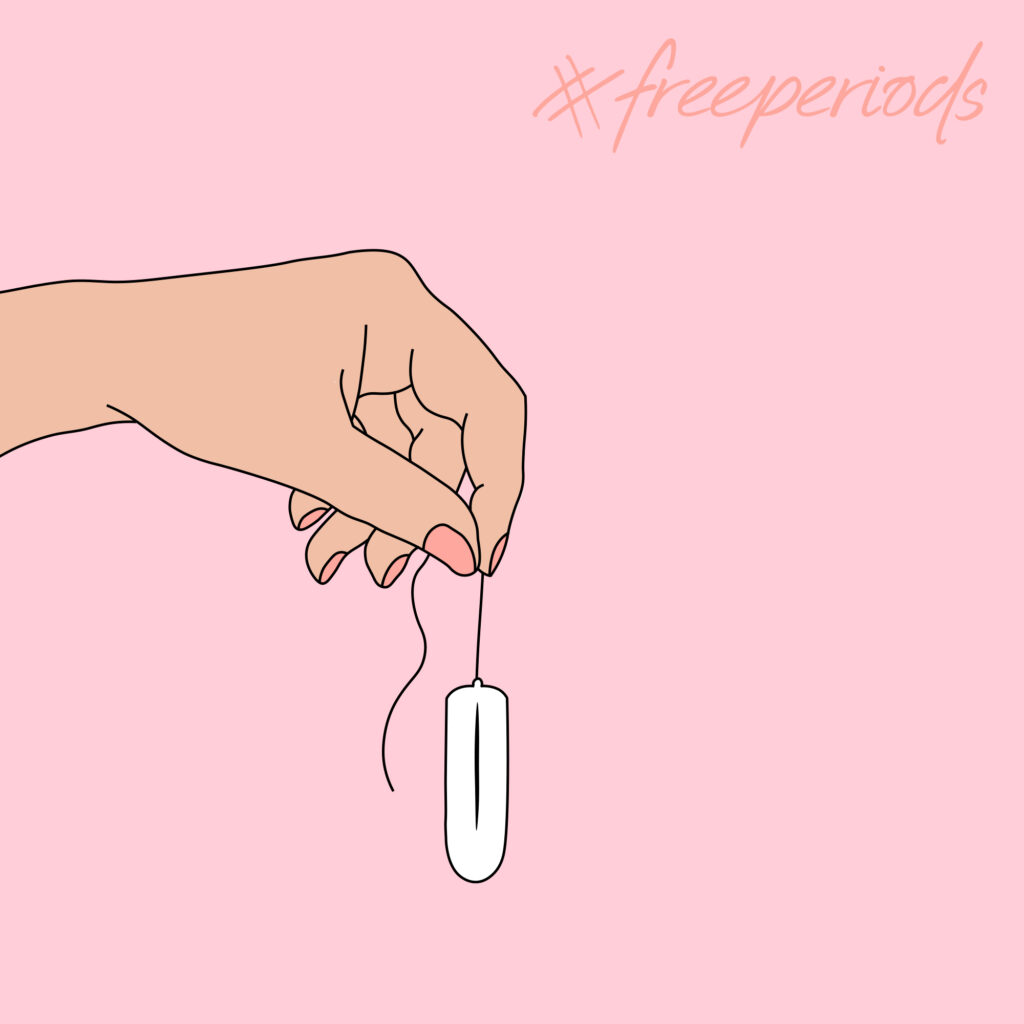On 24 November 2020, the Scottish government passed the Period Products (Free Provision) Bill, placing a duty on all local authorities to provide any and all of their citizens with free sanitary products if needed. It’s about damn time. Period poverty – the inability to avoid basic hygiene products and pain relief medication for dealing with periods – has, and continues to, burden millions of menstruating women across the globe. The Scotland Bill has rightly reignited the much-needed conversation on the need for free and widely-available sanitary products.
Actionaid estimates that in the UK the average lifetime cost of a period can amount to £4,800. And monthly, it is approximated that periods cost around £8. Whilst to some people this may seem an insignificant sum, for many working-class or impoverished women this is simply not financially doable. Periods already come with so many gruelling side effects –stomach cramps, tender breasts, back pains and hormonal mood swings to name a few. This is more than enough to deal with on a regular basis, but the real the cherry on top is having to pay for the luxury of making this biological occurrence seem less unbearable. Put simply, it’s time for change.
This is what, at first glance, the Scotland Period Products Bill promises. Change. The Bill’s commitment to providing free products to “anyone who needs them” is ideal in writing, but what does this really mean? For, if the fight to end not only period poverty but period equality, is to be won, periods should be free and readily available universally, not just upon request when driven to it as a last resort. In the meantime, the easiest and most common form of attaining period products such as pads and tampons will still be by purchasing them in shops, which, of course, is still subject to tampon-tax.
The Bill makes no immediate provisions for the equal and consistent distribution of free period products across all social stratum. It vaguely suggests that “specified public service bodies” in the future may be used for this purpose, but this is too vague to even acknowledge. In actuality, though the Bill was passed in November, ministers have up to two years to implement provisions for the demands of the legislation. So yes, Scotland has been progressive in its efforts and has already made sanitary products available in schools, colleges and universities, but we might not actually see the progressive benefits of the Bill until these two years have passed.
What about the rest of the UK, then? The simple answer is that the Scotland Bill, whilst not all that ground-breaking, is as far as we’ve got. The UK government rolled out free sanitary products to all primary and secondary schools early this year, but the reality is that period poverty is not just a youth issue. It is sad that, actually, for many women, it is a lifelong one. Having now left the EU, the government has the freedom to reform its laws and taxes on period products, but we are yet to hear of any such change. This is especially a big issue in 2020, when, because of the COVID-19 Lockdowns, many young people have suffered periods without the free provisions from their schools.
So it looks like period poverty in the UK is an ongoing battle, let alone globally. Whilst the Scotland Bill is a step towards progress, it does little for the immediate relief of period poverty, not to mention that it hasn’t been implemented in the rest of the UK. The reality is, we must acknowledge that period poverty is yet another weight upon women’s shoulders in a society that is still structurally built for, and around, the male agenda (as per). Periods are a biological, natural imperative. They are not a choice. What is a choice is to drop tampon-tax; to actively advocate for and implement laws that immediately alleviate the financial burdens of periods; to treat female health and sanitation as the priority it is. Until these choices are made, period poverty will continue to bear a heavy and unnecessary burden for so many.
Are We Really on the Way to Ending Period Poverty in the UK?
